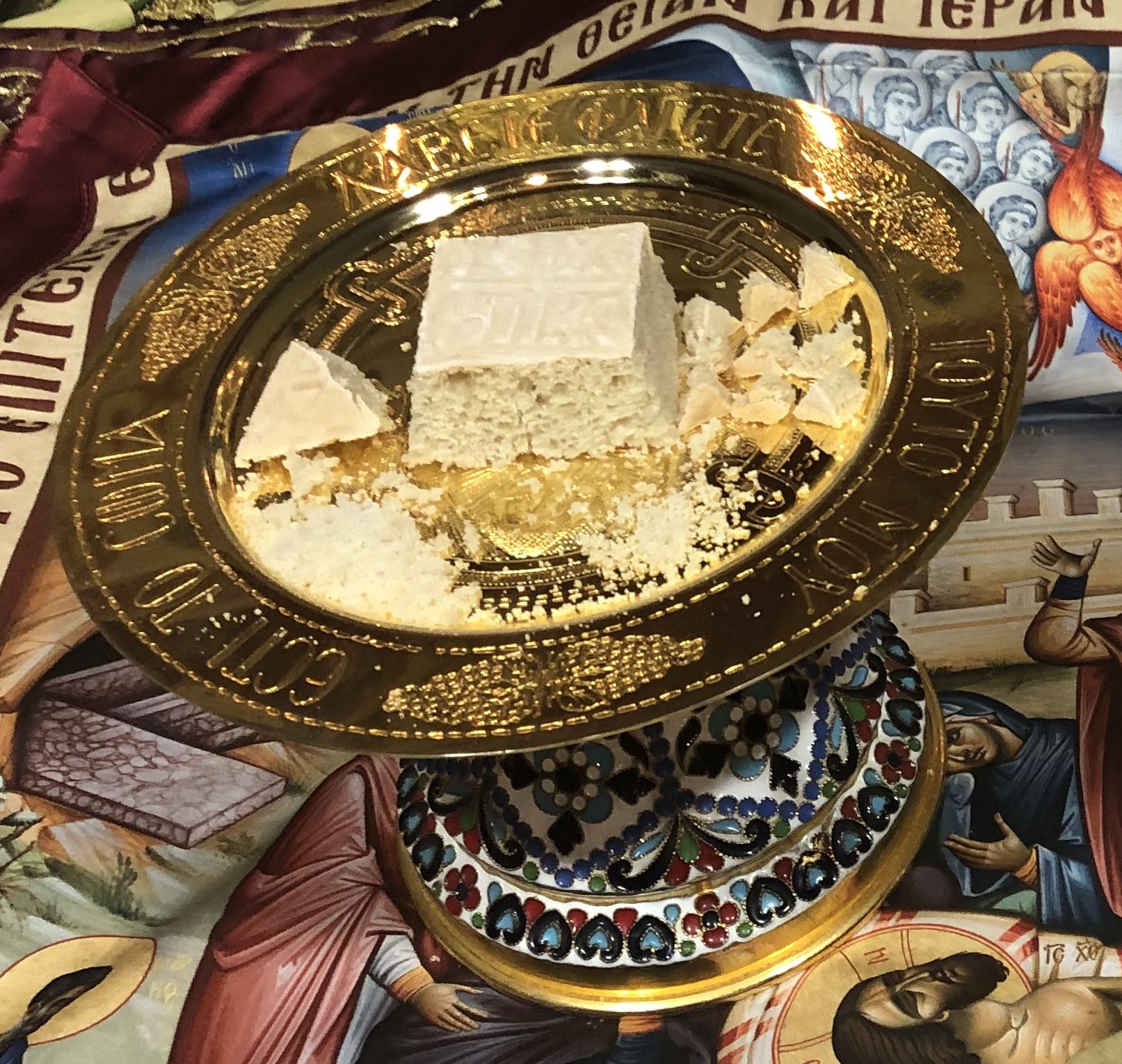Greater love has no man than this, that a man lay down his life for his friends.
John 15:13
Because speaking about death is an uncomfortable subject for many people, we either don’t know or don’t share certain things that we should know as Orthodox Christians. We will discuss several of these things today. The first concerns organ donation and is that okay.
The 2020 Yearbook of the Greek Orthodox Archdiocese of America (2020 Yearbook Greek Orthodox Archdiocese of America, New York, NY, Published by the Greek Orthodox Archdiocese of America, 2020) provides pastoral guidelines on this subject, which were written by the late Fr. Stanley Harakas, who was widely recognized for teaching and writing on Orthodox Ethical issues. On p. 268, we read the following, concerning the donation of organs:
Although nothing in the Orthodox tradition requires the faithful to donate their organs to others, nevertheless, this practice may be considered an act of love, and as such is encouraged. The decision to donate a duplicate organ, such as a kidney, while the donor is living, requires much consideration and should be made in consultation with medical professionals and one’s Spiritual Father. The donation of an organ from a deceased person is also an act of love that offers the recipient a longer, fuller, life. Such donations are acceptable if the deceased donor had willed such action, or if surviving relatives permit it providing that it was in harmony with the desires of the deceased. Such actions can be approved as an expression of love and the self-determination of the donor. In all cases, respect for the body of the donor should be maintained. Organ transplants should not be commercialized nor coerced nor take place without proper consent, nor place in jeopardy the identity of the donor or recipient, through, for example, the use of animal organs. The death of the donor should never be hastened in order to harvest organs for transplantation to another person.
Because we are created in the image and likeness of God, by God Himself, we have dignity and infinite value. If we can extend the life of someone else by offering them organs we won’t need because we are deceased, it acknowledges that we value others, so much so that we believe in offering a gesture of love and caring to extend their lives, even as our life ends (though we do not hasten our death in order to accomplish this).
The second issue concerns cremation. Fr. Harakas again offers the Orthodox view on this subject when he writes,
Because the Orthodox Faith affirms the fundamental goodness of creation, it understands the body to be an integral part of the human person and the temple of the Holy Spirit, and expects the resurrection of the dead. The Church considers cremation to be the deliberate desecration and destruction of what God has made and ordained for us. The Church instead insists that the body be buried so that the natural physical process of decomposition may take place. The Church does not grant funerals, either in the sanctuary, or at the funeral home, or at any other place, to persons who have chosen to be cremated. (p. 268)
Part of this teaching on the importance of burial comes from Ezekiel 37, a vision of the future resurrection of all people, where the prophet comes upon a valley of dry bones (not ashes) and the bones come together into a new creation with new bodies and new breath. In addition to this Biblical teaching, we have the burial of Christ Himself, who was laid in the grave in body. Is cremation going to send someone to eternal condemnation? That is not our call. What about bodies that have burned in a fire, or been lost, or buried at sea? These are extremes. What we are reflecting on here is the traditional practice of the Church and expectation of her members.
There are many aspects of church practice where economia, or dispensation, is given when what is expected cannot or does not happen. This is not one such instance. The only exception to this would be first, by consent of a bishop, and second, in an extreme circumstance, such as a city running out of cemetery space and it being the civil law that burial is not allowed within a municipality. While I am unaware of any situation that exists like this at present, this is the only kind of extenuating circumstance where this would be allowed. There are instances where very pious people cannot afford a traditional burial. Therefore, this is something to be spoken about before a death occurs, with the local community and with the presiding Hierarch.
The third issue concerns opening a casket at a funeral. It is the position of the church that there is dignity to the human body. It is to be honored in life and in death. The Tradition of the Orthodox Church is that a casket be open at a funeral service, in order to honor the remains of the deceased and in order to confirm the finality of death. Seeing a loved one after they have passed helps to bring closure, as we have seen them in life and then in death. It also helps us deal with the reality of death. We don’t just have a closed casket with a photo collection to have a “celebration of life,” but a tangible confirmation that we are dealing with a death and all the appropriate emotions that accompany it, including grief. Again, there are extenuating circumstances where this would not be required, such as significant trauma to the body of the deceased that would happen in a fire or an accident.
The fourth issue is euthanasia, or assisted suicide, sometimes called “mercy killing.” While this is legal in many places, the church cannot endorse this action. We believe first in the mercies of God. We’ve already discussed that it is not our role to choose when life ends. This belongs to God alone, who is the Author of life. While discontinuing a medical treatment and letting “nature take it’s course,” is ethical, deliberately ending life is not.
The next issue concerns embalming the body of the deceased. The church does not prohibit this because in many instances, if burial doesn’t happen within twenty-four hours, the civil law may require it. Strictly speaking, a body should naturally return to its elements and embalming slows this process down. It is not required but not prohibited.
Memorial services are held at various intervals after a person has passed away. Commonly a memorial service is conducted after forty days (the interval of time between the Resurrection and the Ascension of Christ) and on the yearly anniversary. In parts of the world where it is customary to disinter remains, such as in Greece (where they do not typically embalm people), this disinterment is done after three years, and the remains are consolidated into a smaller container and reinterred. This is the reason for the three-year memorial. Since disinterment is not done in the United States, there is no “need” for a three-year memorial. Memorials are also offered on four Saturdays, called “Saturday of the Souls.” Three are at the beginning of Lent and one is the Saturday before Pentecost. Memorials are not done on feast days of the Lord and the Virgin Mary, nor from Saturday of Lazarus through Thomas Sunday. The tradition of offering koliva, or boiled wheat, at a memorial service comes from John 12:24, where Jesus says to the disciples, “Truly, truly, I say to you, unless a grain of wheat falls into the earth and dies, it remains alone; but if it dies, it bears much fruit.” The most basic food of humanity is bread. Bread comes from wheat, and wheat comes from seeds that are separated from the stalk (essentially dead) which are then planted into the earth and come alive again as a stalk of wheat. In the same way, we die, enter into the earth but rise to a much greater life.
Finally, the last issue concerns burial for those who have died by suicide. According to the guidelines of the Archdiocese, a funeral is allowed if the deceased can be shown to have been under psychological or psychiatric care for mental illness, in others words, to have been shown to not be in the proper frame of mind to make rational decisions (2020 Year, book, p. 269). In most instances now, it is presumed that no one in their right mind could make a decision to terminate their life. Thus, whether they are being treated for a mental illness or have a temporary episode that causes suicide, in every instance I have heard of, a Hierarch will grant permission for a funeral to be held. In the several instances that have happened in my ministry, my Hierarch has always granted permission. His only request was that the individual priest inform him and ask his permission, so that he is hearing before a funeral from the presiding priest the circumstances and then offering his blessing.
Thy testimonies are wonderful; therefore my soul keeps them. The unfolding of Thy words gives light; it imparts understanding to the simple. With open mouth I pant, because I long for Thy commandments. Turn to me and be gracious to me, as is Thy wont toward those who love Thy name. Keep steady my steps according to Thy promise, and let no iniquity get dominion over me. Redeem me from man’s oppression, that I may keep Thy precepts. Make Thy face shine upon Thy servant, and teach me Thy statutes. My eyes shed streams of tears, because men do not keep Thy law. Psalm 119:129-136
It is important to talk about Orthodox practices and teachings concerning death so that we are familiar with them when the time comes when someone has passed away, and to have important conversations before someone passes away.

